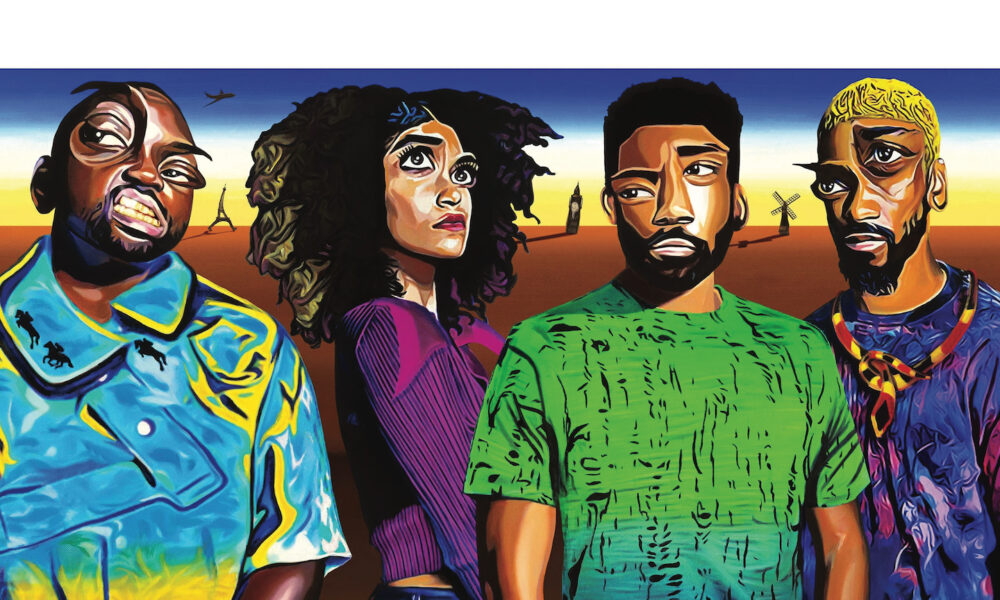Warning: Spoilers ahead
The third season of Atlanta may very well be its best. Picking up from its season two finale nearly four years ago, Atlanta leaves behind its titular setting for Europe, just as it does with its old rules for fresh fury. Donald Glover, the show’s creator, showrunner, and lead actor, abandons any form of predictable clichés for frenzied, yet thematically consistent vignette-style storytelling. The David Lynch-like traces of horror-slash-surrealism that Atlanta once teased take centre stage, elevating its comedy in ways I didn’t think possible. But at its core, Atlanta remains the same, following the down-on-his-luck Earn (Donald Glover) trying to make something of himself as a music manager for his talented cousin and rising hip-hop star Alfred (Bryan Tyree Henry). Immensely intelligent and perpetually stupid, Earn can never seem to live up to his potential.
Unlike many of its contemporaries, Atlanta doesn’t try to fart soliloquies; rather, it leaves itself bare and doesn’t take itself too seriously. For example, the season’s pilot opens on a quiet night, where two friends are fishing on an eerie lake. The white friend explains to his Black friend the cursed lake’s history, and how there used to be a town—inhabited solely by Black residents—that was flooded by the government, drowning many. Apparently the town was once so prosperous they were “almost white,” since whiteness was really something to be bought, nothing more than a mirage. With each word growing more ominous, the white man suddenly turns to reveal a pair of empty eye sockets and shrieks as ghosts pull the Black friend into the lake. This type of commentary—laced in mythos and quite funny—is what makes this season so spectacular.
The season’s pilot is a bottle episode based on the Hart family murders, an enraging case of foster parenting gone wrong. The moments stolen from real life are more terrifying than any of the episode’s supernatural contortions. Episodes two and three return to the previous season’s storyline as Alfred’s European rap tour proves to be a huge success. The familiar cast navigate their way through unfamiliar European countries, which on the surface appear more friendly than the America they’re used to—the key word being ‘appear.’ From commercialized blackface to the wealthy’s fetishization of white saviourism, the ironies, hypocrisies, and absurdities of racism remain, just worn under a different mask.
Glover achieves creative freedoms rarely seen in Hollywood. Atlanta isn’t afraid to offend, tackling Sinterklaas and depression in the same episode that portrays an elderly Tupac Shakur’s assisted suicide—and still managing to make it hilarious.
There are moments Atlanta sends me into a near-fatal laughing fit, but as I catch my breath I can’t help but question whether it’s intended to be funny. Atlanta blurs the line between comedy and political commentary, but whether this is to make itself more palatable for wider audiences or make the real problems more bearable is unclear. Perhaps Donald Glover isn’t certain himself. Or, perhaps attempting to pry into the show’s intentions is a pointless exercise in conjecture, rather than taking it for what it is. A famous T.S. Elliot quote comes to mind: “I meant what I said. If I could have said it any differently, I would have.”
Without exposing too much, there is one scene in the first episode I believe best encapsulates both the humour and the poignancy of Atlanta season three: Loquacious, a young Black boy paraded by his insane white foster parents, holds a “Free Hugs” sign at a farmer’s market, before a white man approaches and asks, “Aw. Is Hugs your father?”
Atlanta season three streams on Apple TV+, with new episodes releasing every Thursday.









